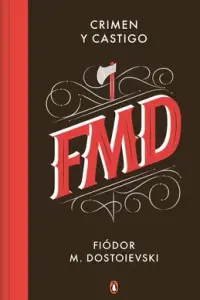Resumen
El crimen y el castigo, one of Fyodor Dostoyevsky’s greatest masterpieces, explores the depths of guilt, morality, and redemption through the story of Rodion Raskólnikov, a destitute ex-student in St.
Petersburg.
Convinced of his intellectual superiority and driven by desperation, he commits a brutal murder, believing he can justify the crime as a means to achieve greater good.
However, the act plunges him into a spiral of paranoia, inner torment, and moral conflict.
As he struggles with his conscience, Raskólnikov encounters characters who embody contrasting moral and spiritual paths—most notably Sonia Marmeladova, a humble and devout young woman whose compassion and faith stand in stark opposition to his nihilistic rationalizations.
Through its intense psychological depth, Dostoyevsky examines themes of justice, free will, suffering, and redemption, ultimately revealing the possibility of salvation through humility and human connection.
A cornerstone of world literature, El crimen y el castigo remains a timeless reflection on the complexities of crime, punishment, and the human soul.
